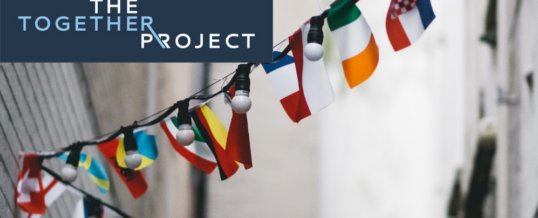
McLeod Group guest blog by Nicolas Moyer, December 17, 2020
In a national poll commissioned by Cooperation Canada and completed on December 2, Abacus Data found that, by a 2-to-1 margin, Canadians agree that Canada needs to help poorer countries in their recovery from the COVID-19 pandemic. However, Canadians are split on whether Canada should spend more to help those countries – 36% agree, while 34% disagree. How should organizations working in international cooperation come to grips with such wobbly support?
As the national association for Canadian international development and humanitarian organizations, Cooperation Canada represents a diversity of groups with a wide range of areas of focus. Together, we all stand for the empowerment of the most marginalized, working for a better world that is more just, fair and sustainable for all.
How we come by that sense of responsibility differs. For some it is rooted in faith, for others it is based on an understanding of the harm our systems and institutions have caused, and the privilege we enjoy as a result, or it is simply the knowledge that we, as partners, can make a difference.
As COVID-19 exacerbates inequalities everywhere, the members of Cooperation Canada need to prioritize cultivating new allies who see the value of investing in just global progress. That is particularly true among Canada’s political decision makers, who have failed to prioritize global investments in recent decades.
It is for these reasons that Cooperation Canada invested the better part of a year, working with its members and sector coalitions, such as Climate for Development (C4D), the Food Security Policy Group (FESG), the Canadian Partnership for Women’s and Children’s Health (CanWaCH) and many others, to craft a set of arguments for international cooperation. Our report, In this Together: A Case for Canada’s Global Engagement, outlines the evidence and rationale for Canada’s investments in international assistance. It highlights the historical impact of Canada’s official development assistance (ODA) and the beneficial ripple effects that it generates around the world. The Together Project shows that investments in global progress are both moral and strategic imperatives for Canada.
Getting to this outcome has taken many steps. Advocates began testing different arguments during a Hill Day organized last February in Ottawa. Sector representatives met with 60 parliamentarians to present different arguments and noted which ones resonated. Separately, biweekly meetings among Cooperation Canada members helped us draft investment cases together, making this a collective endeavour.
It has been a year of challenging yet constructive conversations about strategies for promoting the principles of our sector, while also speaking to the benefits Canada derives from its global engagement and engaging new audiences. Our members participated in every step – from developing to naming each of the cases.
The Together Project is significant in three ways. First, it connects all major themes (humanitarian aid, gender equality, health, governance, etc.) to present a single Canadian case for investment in international assistance. It will allow advocates to point to the comprehensive benefits of investments in international assistance as a whole and of specific areas of intervention without pitting one priority against another.
Second, the lengthy and inclusive process of developing the Together Project has helped strengthen linkages among sector champions and reinforce the commitment to shared advocacy efforts. The process leading to the Together Project, itself, is a success story. We all want to grow Canada’s ambitions and contributions, not carve up a diminishing pool of resources.
Third, the Together Project is designed to engage an external audience, primarily decision-makers, by highlighting the benefits of Canadian investments in international assistance. As a sector, our advocacy will always be principled. The Together Project reflects this commitment, but also demonstrates why Canada’s investments in international assistance deserve greater attention from political leaders seeking strategic opportunities.
Cooperation Canada is proud to launch the Together Project. After more than a year of work with our members and coalitions, we are now able to clearly articulate how the world would be different if Canada invested more in international assistance and why, in addition to being the right thing to do, this is also the smart thing to do.
The Together Project includes an overarching investment case for Canada’s ODA, as well as 11 issue-specific reports which will be unveiled individually in the lead up to International Development Week in February 2021. Building on this foundation over the coming months, sector champions and advocates will need to work closely together to engage strategically with decision-makers and Canadians beyond the usual supporters to create the winning conditions for new and lasting commitments to increase ODA.
Nicolas Moyer is the CEO of Cooperation Canada, Canada’s national association of international development and humanitarian organizations.
